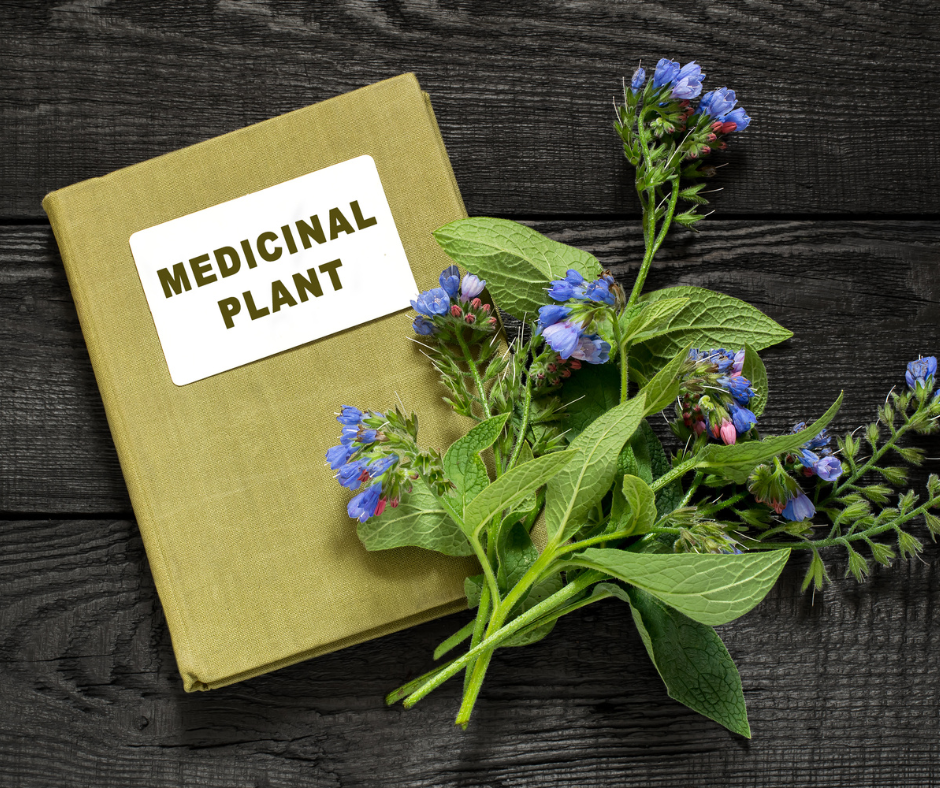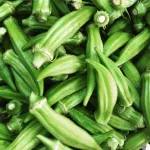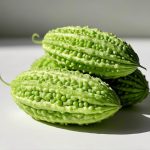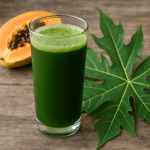
Want to prevent cancer and looking for a natural way to do so? Read on to learn about 5 incredible medicinal plants that help prevent cancer.
As cells replicate, a mutation in the DNA can occur, leading to the development of cancer. It’s natural for this to happen occasionally, and our immune system usually detects it early and puts a stop to it. However, the immune system often fails to recognize cancer cells, enabling them to thrive uncontrollably.
The National Cancer Institute estimates that approximately 39.5% of men and women will be diagnosed with cancer during their lifetimes (based on 2015–2017 data). For centuries, many people have claimed that the benefits of food choices could go far beyond merely being a source of energy.
Some herbs and spices, as well as other foods, have been found to contain phytochemicals that have biological effects on humans. These precious commodities are important not only for their tastes but also for the possible health benefits they may provide.
It’s possible that the contribution of pro- and anticancer factors, which control risk and tumor behavior, may be partially determined by herbs and spices. Read on to learn about 5 incredible medicinal plants that help prevent cancer.
The Role of These 5 Medicinal Plants to Prevent Cancer.
1. Basil
Basil (Ocimum basilicum) plant is used as a seasoning and flavoring in many different types of cuisines around the world, especially in Southeast Asian and Italian dishes. The health benefits of basil have been studied extensively, and sweet basil is one of the most popular and widely studied types of basil.
Basil is beneficial not only because of its antimicrobial properties, but also because it has been shown to reduce oxidative damage. Basil’s ability to affect viral infections may be related to its anticancer properties. Stir fry, curry, tomato-based sauces, salads, dressings, and marinades are just some of the many dishes that benefit from the herb’s inclusion.
2. Turmeric
Curcumin, found in the spice turmeric, is responsible for the yellow color of curry powder. Some of the most potent anti-inflammatory properties known are associated with the compound curcumin. Tumors of cancer are supplied with nutrients by an intricate network of blood vessels, which curcumin can disrupt.
In order to release curcumin’s full potential, turmeric should be combined with black pepper and olive oil. You can use turmeric as a dry rub on chicken or vegetables because of its pleasant flavor. Soups, sauces, and stews benefit from a dash or two as well.
3. Garlic
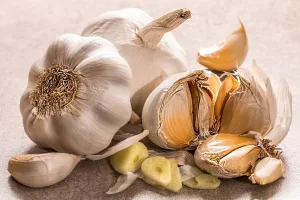
Allium sativum, more commonly known as garlic, belongs to the onion family, Alliaceae. For thousands of years, people have appreciated garlic for its usefulness in the kitchen and the medicine cabinet. Sulfur, which makes up nearly 1% of garlic’s dry weight, is responsible for the bulb’s distinctive flavor and aroma.
Organosulfar boosts immunity and inhibits cancer growth. The use of garlic in the kitchen is endless. You can prepare it by sautéing it in a tablespoon of olive oil and serving it with whole grain bread, or you can bake it in the oven and then mash it into a spread after it has been cooked. Incorporating it into meat and vegetable dishes is a must.
4 Ginger
Zingiber officinale, also known as ginger, is a popular herb and spice that also has medicinal properties. Research suggests that South Asia was the first region where ginger was cultivated, and its use has since spread around the globe.
Prostaglandin E2 (PGE2) is a potent inflammatory mediator, and it has been shown that ginger extracts can inhibit PGE2 production to a similar extent as the anti-inflammatory drug, indomethacin. It’s simple to include ginger in your daily diet. Fresh ginger, once peeled, can be cut in a variety of ways for culinary use.
It can also be made into a tea, and studies have shown that drinking ginger tea may help with stomach upset and the flu.
5. Thyme
One more herb that can be used in both food and medicine is thyme. The term is now commonly used to describe any plant belonging to the genus Thymus, which is in the family Lamiaceae. Consuming thyme leaves has been shown to increase xenobiotic-metabolizing enzymes, which play a crucial role in the body’s metabolism, elimination, and detoxification of environmental pollutants.
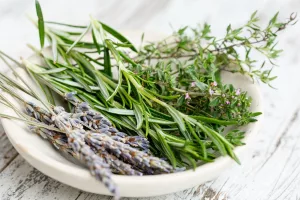
Carvacrol, a component of thyme, has natural disinfectant properties and may also inhibit the growth of cancer cells. There are two ways to use fresh thyme in the kitchen: either by adding the entire herb, stem and all, to a recipe, or by simply removing the leaves and using them as a garnish. It goes well with a wide variety of meats, poultry, stews, soups, eggs, pastas, vegetables, and beans. If you’re serving fish or seafood, try some fresh thyme as well.
Since ancient times, people have used herbs and spices as seasonings, dyes, and preservatives. With around 180 different spices used in cooking, the effects of herbs and spices are far-reaching and beyond the scope of this article. Herbs that reduce the risk of cancer are most effective when combined with other measures to promote health, such as maintaining a healthy weight, getting plenty of exercise, and cutting back or eliminating harmful vices like smoking and excessive alcohol consumption.
Disclaimer: This is for informational purposes only.
Did you find this helpful? Let us know in the comments.
Source: The National Center for Biotechnology Information
You can also visit our Facebook and YouTube pages to know more about plants and their health benefits.
You might also like:

